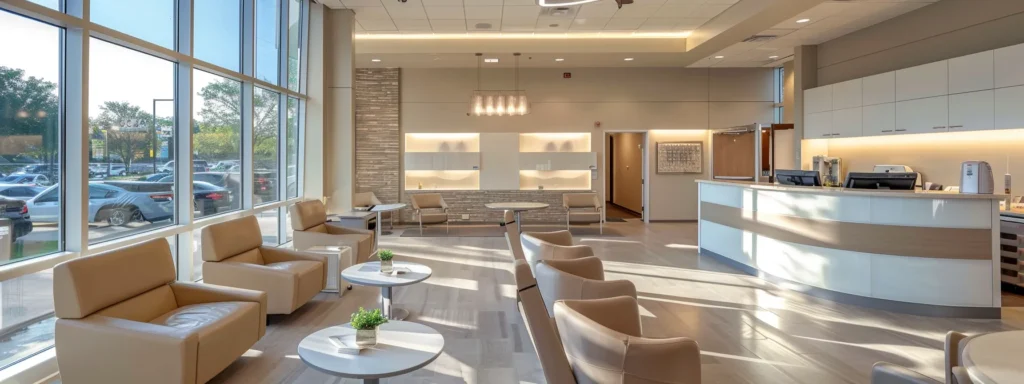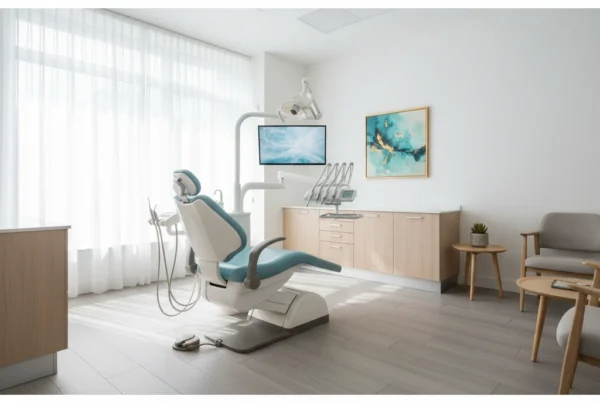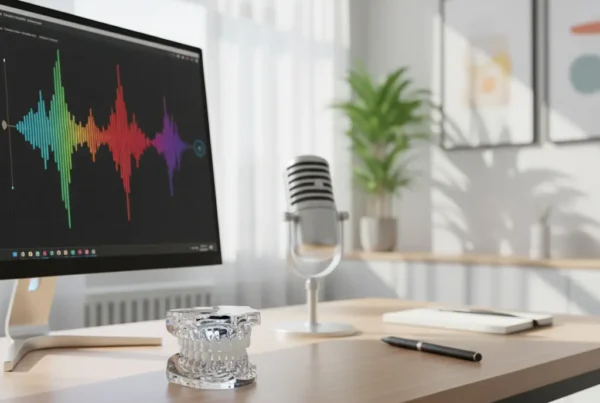Worried that Invisalign might make you sound different when you talk? It’s completely normal to have concerns about how clear aligners might affect your speech, especially if you speak publicly for work or just want to feel confident in conversations. Dr. Behrooz Khademazad has helped thousands of Grand Prairie patients navigate this concern over his 34 years of practice, and he has great news: while most people do notice some minor speech changes at first, they typically adjust within just a few days to a week.
What Really Happens to Your Speech
When you first put in your Invisalign aligners, your mouth needs to get used to having something new covering your teeth. Think of it like wearing new shoes – they might feel different at first, but soon you forget you’re even wearing them. Your tongue, which is incredibly smart and adaptable, quickly learns to work around the thin plastic material.
Most people notice a slight lisp when they first start wearing their aligners. This happens because sounds like “s” and “z” are made by your tongue touching your teeth in a very specific way. When there’s a thin layer of plastic between your tongue and teeth, these sounds can come out a little differently at first. Dr. Khademazad reassures patients that this is completely normal and temporary.
Other sounds that might be affected initially include “t,” “d,” and “n” sounds. These require your tongue to touch the roof of your mouth or your teeth in precise ways. The aligners can make this feel different at first, but your tongue adapts remarkably quickly. Most patients in Grand Prairie are surprised at how fast they adjust to speaking normally again.
The good news is that Invisalign aligners are incredibly thin – much thinner than traditional braces or retainers. This means the adjustment period is usually much shorter than with other orthodontic treatments. Your brain and mouth work together to compensate for the slight changes, and before you know it, you’re speaking completely naturally again.
How Long the Adjustment Takes
Everyone’s adjustment period is different, but most people find their speech returns to normal within three to seven days. Dr. Khademazad has noticed that patients who talk a lot during their daily activities often adjust faster because they get more practice speaking with their aligners. It’s like learning any new skill – the more you practice, the quicker you improve.
Some people adjust almost immediately and barely notice any speech changes at all. These lucky patients might have speech patterns that naturally adapt to the aligners, or their specific dental situation might make the transition easier. Dr. Khademazad has seen patients who sound completely normal from day one of their Invisalign treatment.
Others might take a week or even two weeks to feel completely comfortable speaking with their aligners. This is still considered completely normal and isn’t a cause for concern. Factors like your natural speech patterns, the complexity of your dental alignment, and how much your teeth need to move can all influence how quickly you adapt.
Professional speakers, teachers, and people who depend on clear speech for their work often worry most about this adjustment period. Dr. Khademazad works with many professionals in the Dallas-Fort Worth area and helps them time their treatment start to minimize any impact on important presentations or events.

Speeding Up Your Adjustment
There are several things you can do to help your mouth adjust more quickly to speaking with Invisalign aligners. Dr. Khademazad shares these tips with all his patients to help them feel confident about their speech from the very beginning of treatment.
Reading aloud is one of the best exercises for adjusting to your aligners. Choose something you enjoy – a book, magazine, or even social media posts – and read out loud for 10-15 minutes several times a day. This gives your tongue lots of practice working around the aligners and helps speed up the adjustment process.
Talking to yourself might feel silly, but it’s actually very helpful. Practice saying words that contain “s,” “z,” “t,” and “d” sounds. You can do this while driving, walking, or doing chores around the house. The more you practice these sounds, the faster your speech will return to normal.
Here are proven techniques to help you adjust faster:
- Read aloud for 10-15 minutes several times daily
- Practice difficult sounds like “s,” “z,” “t,” and “d” words
- Talk more than usual during your first few days
- Stay well-hydrated to keep your mouth comfortable
- Practice tongue twisters to improve coordination
- Record yourself speaking to track your progress
Staying hydrated is more important than you might think. When your mouth is dry, the aligners can feel more noticeable and speech can be more difficult. Drinking plenty of water keeps your mouth comfortable and helps your tongue move more easily around the aligners.
When to Seek Additional Help
While most speech adjustments with Invisalign resolve quickly on their own, Dr. Khademazad wants patients to know when they should reach out for additional support. His 34 years of experience have taught him to recognize when patients might benefit from extra help with their speech adjustment.
If you’re still experiencing significant speech changes after two weeks of consistent aligner wear, it’s worth discussing with Dr. Khademazad. Sometimes a simple adjustment to how the aligners fit can make a big difference in speech clarity. The aligners might need to be trimmed slightly or adjusted to better accommodate your individual speech patterns.
Persistent lisping or difficulty with specific sounds beyond the normal adjustment period might indicate that your aligners need professional modification. Dr. Khademazad can make precise adjustments to the edges of your aligners or modify their thickness in specific areas to improve your speech comfort.
Some patients benefit from working with a speech therapist, especially if they had speech challenges before starting Invisalign treatment. Dr. Khademazad has connections with excellent speech professionals in Grand Prairie and can coordinate care when additional support would be helpful.
| Timeline | What’s Normal | When to Contact Dr. Khademazad |
| Days 1-3 | Noticeable lisp or speech changes | If aligners cause pain or extreme discomfort |
| Days 4-7 | Gradual improvement in speech clarity | If no improvement is noticed at all |
| Week 2 | Near-normal or normal speech | If significant speech issues persist |
| Week 3+ | Complete speech normalization | If any speech concerns remain |
Remember that everyone’s adjustment timeline is different, and there’s no need to worry if you take a little longer to adjust than someone else. Dr. Khademazad’s goal is to ensure that every patient feels completely comfortable and confident with their speech throughout their Invisalign journey.
Managing Professional and Social Situations
Many patients worry about how speech changes might affect their work or social interactions. Dr. Khademazad helps patients plan their Invisalign start date around important events and provides strategies for managing any temporary speech adjustments in professional settings.
If you have an important presentation, job interview, or special event coming up, Dr. Khademazad can help you time your treatment to minimize any potential impact. Many patients choose to start their Invisalign treatment on a Friday so they have the weekend to adjust before returning to work.
For people whose careers depend heavily on clear speech, Dr. Khademazad sometimes recommends starting treatment during a less busy period or when you can take a few days to adjust. Teachers might start during a school break, while salespeople might begin treatment during a slower season.
Most people find that their colleagues, friends, and family don’t even notice any speech changes. The adjustments are usually much more noticeable to you than to the people around you. Dr. Khademazad encourages patients to be open about their treatment – most people are supportive and understanding.
Ongoing Care and Support
Dr. Khademazad and his team provide continuous support throughout your Invisalign journey, including help with any speech-related concerns that arise. Regular checkups allow him to monitor how well you’re adjusting and make any necessary modifications to ensure your comfort and confidence.
During your regular appointments, Dr. Khademazad specifically asks about your speech adjustment and any concerns you might have. These check-ins allow him to address small issues before they become larger problems and ensure that your treatment progresses smoothly.
If speech issues do arise during treatment, Dr. Khademazad can often resolve them quickly with minor adjustments to your aligners. His experience with thousands of patients has given him insight into the most effective solutions for speech-related challenges.
Here are ongoing care practices that support clear speech throughout treatment:
- Keep aligners clean to prevent buildup that could affect speech
- Stay hydrated to maintain comfortable mouth conditions
- Report any persistent speech concerns during regular appointments
- Follow all care instructions to ensure optimal aligner fit
- Practice good oral hygiene to prevent issues that could affect speech
- Communicate openly with Dr. Khademazad about any concerns
The goal is for you to feel completely confident and comfortable speaking throughout your entire Invisalign treatment. Dr. Khademazad’s comprehensive approach ensures that speech concerns don’t interfere with your daily life or your journey to a beautiful smile.
Your Confident Communication Journey
Speaking clearly and confidently is important for your personal and professional life, and Dr. Khademazad understands these concerns completely. His approach to Invisalign treatment includes specific attention to speech adjustment, ensuring that patients feel supported throughout the process. With proper guidance and realistic expectations, temporary speech adjustments become a minor part of your journey to straighter teeth.
The vast majority of Dr. Khademazad’s Grand Prairie patients find that any initial speech changes are much less noticeable than they expected and resolve much more quickly than they feared. His 34 years of experience have shown him that most speech concerns are manageable with proper preparation and support.
Your investment in Invisalign treatment includes not just straighter teeth, but also Dr. Khademazad’s commitment to ensuring your comfort and confidence throughout the process. With the right approach and support, temporary speech adjustments won’t interfere with your daily activities or long-term satisfaction with your treatment results.
Schedule your consultation today with Dr. Behrooz Khademazad and discover what personalized dental care in Grand Prairie, TX truly feels like.
Schedule Your Consultation Today!
2475 W Pioneer Pkwy Grand Prairie, Texas, 75051
Google Reviews: See More Reviews From Grand Prairie Family Dental
View information about local places in our community.
Driving Directions to Our Practice
Frequently Asked Questions
Will wearing Invisalign affect how I talk?
Most people do experience minor speech changes when they first start wearing Invisalign, typically a slight lisp with “s” and “z” sounds. These changes are usually very mild and temporary, resolving within a few days to a week as your tongue adapts to the aligners. Dr. Khademazad provides specific exercises and tips to help speed up this adjustment process.
How long will it take to adjust to speaking with Invisalign?
The majority of patients adapt to speaking with Invisalign within 3-7 days of consistent wear. Some people adjust almost immediately, while others may take up to two weeks to feel completely comfortable. The adjustment time depends on individual factors like your natural speech patterns and how much your teeth need to move.
What can be done if my speech isn’t improving with Invisalign?
If your speech hasn’t returned to normal after two weeks of consistent wear, Dr. Khademazad can help with adjustments to your aligners or provide additional strategies. Sometimes minor modifications to the aligner fit can resolve persistent speech issues. In rare cases, he may recommend working with a speech therapist to address specific challenges and ensure your complete comfort with communication.
Related Services






